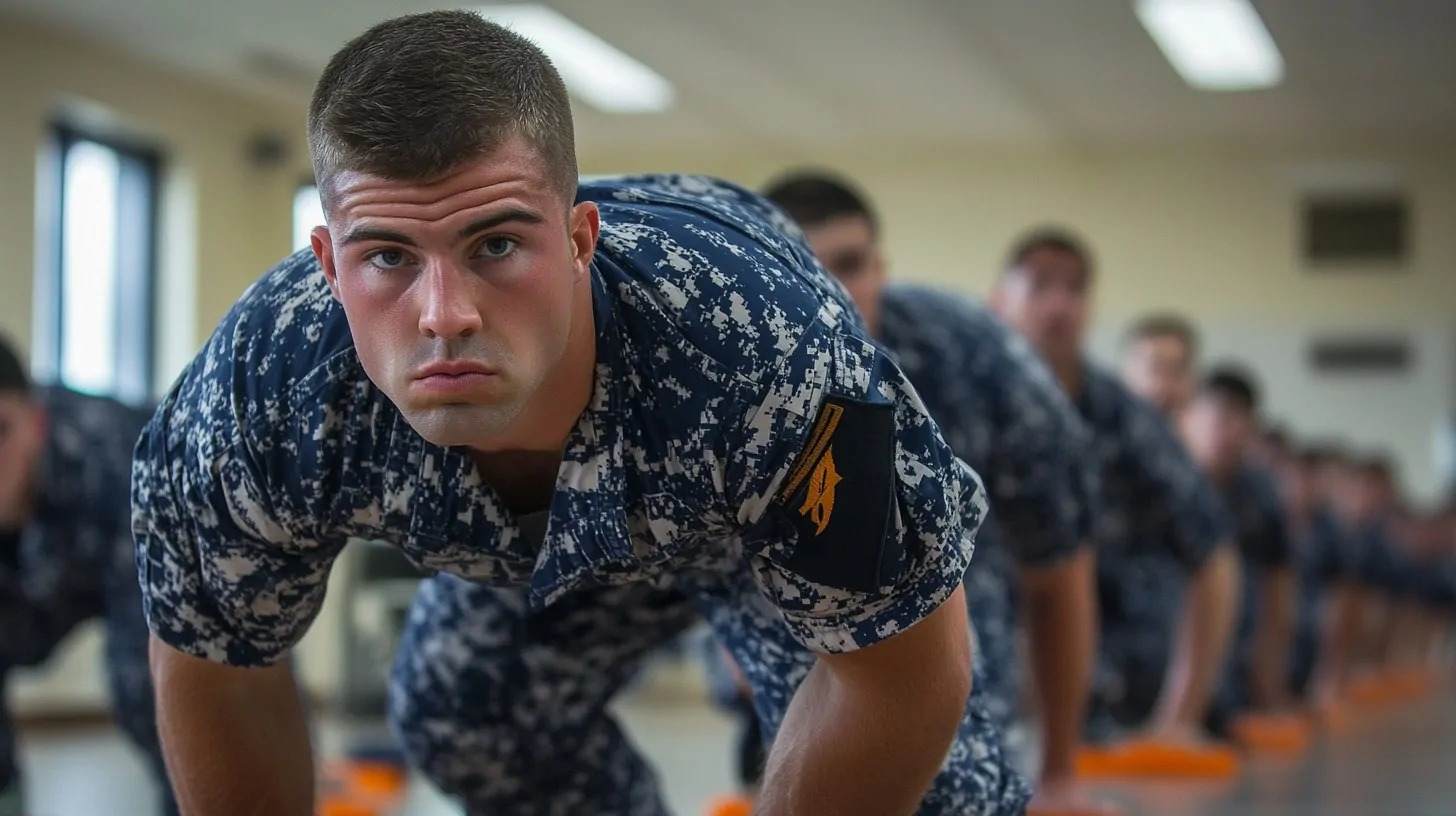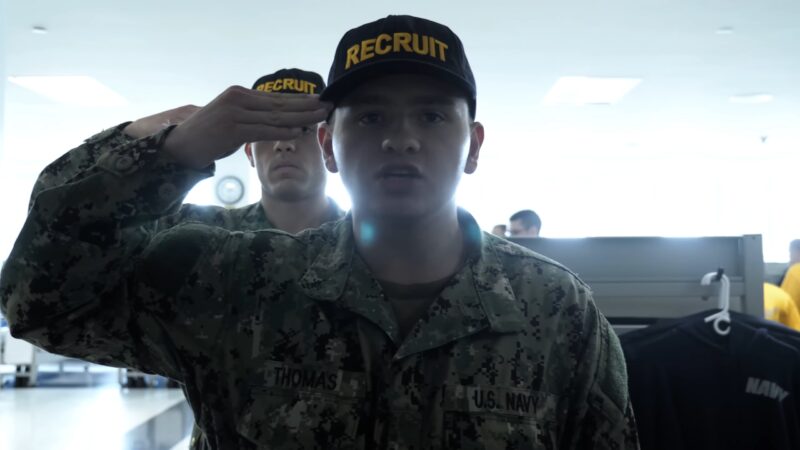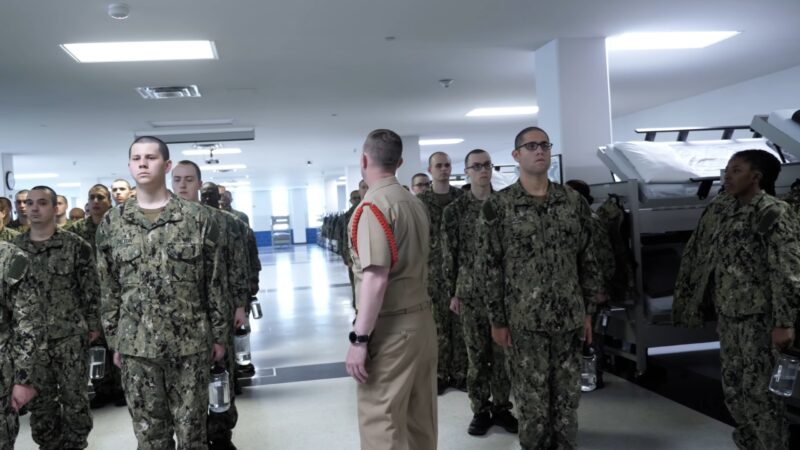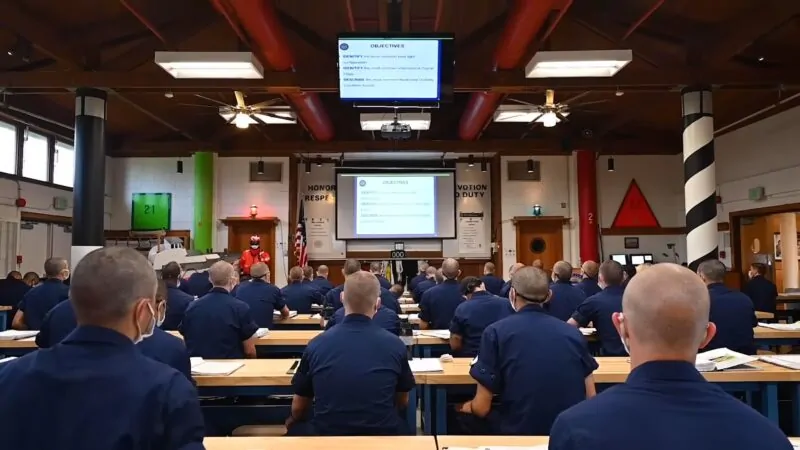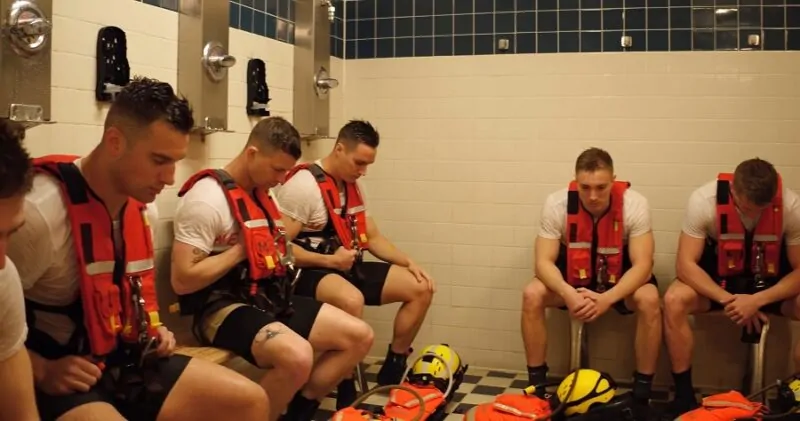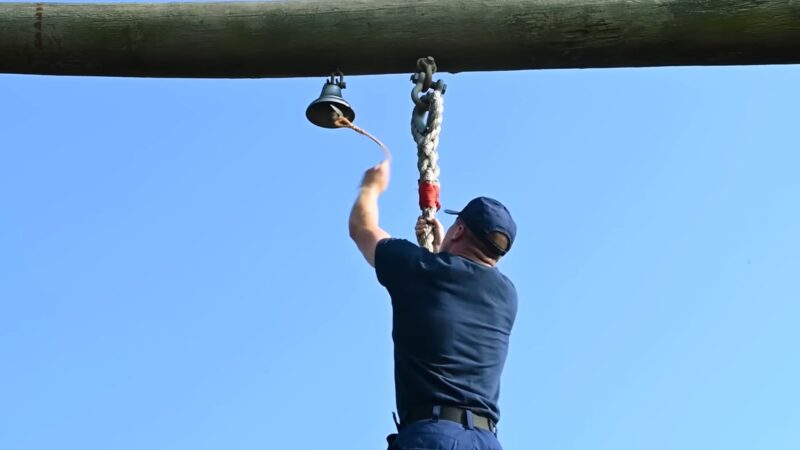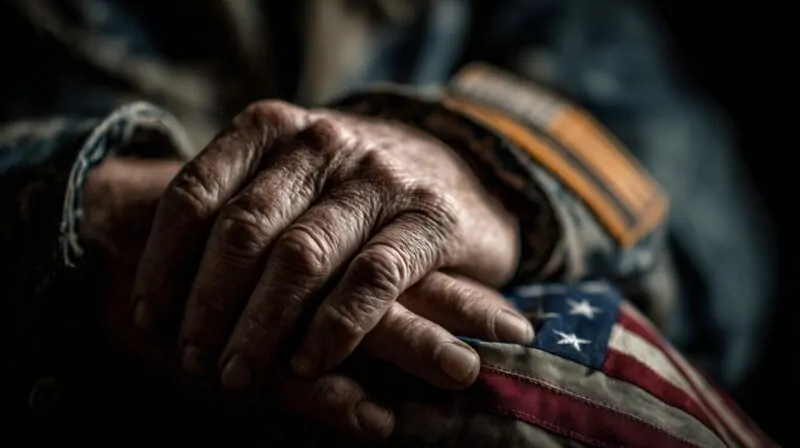Today, we will have an in-depth exploration of the Coast Guard Boot Camp duration, a journey that transforms ordinary citizens into Coast Guardsmen.
Knowing the details of this transformative period is essential for anyone considering a career in the U.S. Coast Guard or for those simply curious about this rigorous training regimen.
Table of Contents
ToggleKey Takeaways
- Coast Guard Boot Camp lasts 8 weeks and takes place in Cape May, New Jersey.
- The training is physically and mentally rigorous, with distinct fitness standards for men and women.
- Recruits earn a salary during training and must meet specific eligibility criteria to join.
- Graduation from boot camp marks the transition from civilian to Coast Guardsman, with further career paths determined post-graduation.
- Discipline, moral values, and family support play crucial roles in the success of recruits during boot camp.
Duration and Location of Coast Guard Boot Camp
Coast Guard Basic Training is an intensive eight-week program designed to transform recruits into capable and disciplined Coast Guardsmen.
The critical phase lays the foundation for the skills, knowledge, and physical conditioning required to serve effectively in one of the nation’s most vital maritime organizations.
The entirety of the training takes place in Cape May, New Jersey, a location steeped in history and significance.
Cape May provides recruits with a focused and immersive environment. Its waterfront setting enhances the maritime training experience and constantly reminds recruits of the mission ahead: to protect and serve America’s waterways. Knowing the rules before applying is of the utmost importance.
Since 2024, new enlisted members of the Coast Guard will go through the Sentinel Transformation and Readiness Training course, or START, a one-week program that will help them transition to new conditions.
Week-by-Week Process
Digging deeper, let’s break down what each week at Cape May entails. Each phase of training presents its challenges and milestones, molding recruits into disciplined, skilled Coast Guardsmen ready to serve.
Here’s a week-by-week breakdown:
Week 1: Induction
Week 1 begins with the induction process, a critical transition phase where recruits are officially welcomed into the U.S. Coast Guard. The initial stage is focused on administrative procedures and acclimatizing to military life.
Recruits are required to complete essential paperwork, which includes filling out medical forms, verifying identification, and completing various legal documents.
The process ensures that recruits are officially registered and ready for what waits ahead.
Next, recruits are issued their uniforms. Wearing the Coast Guard uniform represents the responsibility and honor associated with service.
Alongside uniform issuance, recruits are also provided with the necessary equipment, such as boots, physical training gear, and other essential items they will need throughout their training.
Physical Fitness Assessment
As part of Week 1, recruits are immediately introduced to the Coast Guard’s physical fitness requirements.
It starts with a baseline Physical Fitness Assessment (PFA), which includes exercises such as push-ups, sit-ups, and a timed run.
This initial assessment is intended to gauge each recruit’s fitness levels and identify areas for improvement.
While some recruits may already be physically fit, others may find the PFA their first significant challenge in the program. Regardless of their starting point, all recruits must meet minimum fitness standards by the end of training.
The assessment sets the tone for the physical rigor that will define the next several weeks, and it serves as a starting benchmark to track progress.
Week 2: Immersion
In Week 2, recruits learn more about the structured and demanding lifestyle of Coast Guard training.
Known as the “Immersion” phase, this week is designed to transition recruits from initial orientation to a more rigorous schedule that integrates both mental and physical challenges.
- Classroom education
- Intensified physical training
Classroom Education Begins
The second week signals the beginning of formal classroom instruction, an essential component of Coast Guard training. The classes cover a variety of topics, with a strong focus on Coast Guard history, mission, and core values.
Recruits learn about the heritage of the service, from its founding days to its modern-day role as a critical branch of the U.S. military.
- Honor
- Respect
- Devotion to duty
These core values are embedded in everything recruits do, providing them with a moral compass that will guide their future actions and decisions.
Intensified Physical Training
As recruits adjust to the training rhythm, the physical demands increase substantially in Week 2.
Physical fitness is a cornerstone of Coast Guard service, and the training becomes progressively more challenging to ensure that all recruits meet the branch’s high physical standards.
The emphasis shifts from basic conditioning to endurance and strength training, pushing recruits to surpass their initial limits.
Recruits are expected to push through discomfort and fatigue, learning how to stay focused under pressure. They must perform well in team-based exercises, as teamwork is essential for success in future Coast Guard missions.
The demanding physical regimen, including long-distance runs, strength-building exercises, and agility drills, helps recruits build not only their bodies but also their capacity for perseverance and mental toughness.
Week 3: Foundation Building
Week 3 at Cape May is all about laying down the groundwork for critical skills and values that Coast Guardsmen will carry with them throughout their careers.
The focus is on developing technical abilities, such as weapons handling, while also deepening recruits’ understanding of the ethical responsibilities of service.
Week 3 is pivotal, where physical training is balanced with mental and moral development:
| Weapons Training | Morals and Ethics Training |
|---|---|
| Introduction to firearms and responsibility. | Coast Guard values of honor and duty. |
| Emphasis on safety procedures and handling. | Handling ethical decisions under pressure. |
| Basic shooting techniques and accuracy. | Importance of professionalism and conduct. |
| Focus on team safety and coordination. | Training leaders to lead with integrity. |
Week 4: The Midpoint Challenge
As recruits reach Week 4, they enter a crucial phase known as The Midpoint Challenge, where the intensity of training peaks, both physically and mentally.
This week serves as a marker of progress, testing how well recruits have adapted to the demands of boot camp and determining their readiness for the advanced training ahead.
Intermediate Physical Assessment
In Week 4, recruits face their Intermediate Physical Assessment, which is a critical evaluation of their physical progress since the beginning of training.
- Stretching: Techniques like dynamic stretching, as well as many others, are a part of the training.
- Push-ups, sit-ups, and pull-ups: Testing core strength and upper body endurance.
- Timed runs: Measuring cardiovascular fitness and stamina.
- Swimming tests: Ensuring proficiency in the water, a vital skill for all Coast Guardsmen.
The physical assessment is not only a test of physical endurance but also a psychological checkpoint. Recruits gauge how far they’ve come since Week 1 and identify areas that need improvement.
Those who pass with high marks gain a boost in confidence, while others are encouraged to push themselves further to meet the required standards.
Team Building Exercises
In parallel with the physical tests, team building becomes a major focus during Week 4.
Recruits participate in group exercises that emphasize the importance of teamwork, collaboration, and leadership, all core tenets of service in the Coast Guard.
- Recruits work together to navigate difficult terrain, relying on one another to overcome physical barriers.
- Recruits are given complex scenarios that require collaboration to find solutions, develop leadership qualities, and decision-making under pressure.
- Each recruit takes a turn leading their team through a challenge, honing their ability to lead and direct others, a skill essential for all future Coast Guardsmen.
The exercises focus on teaching recruits that individual success in the Coast Guard is often secondary to the success of the unit as a whole.
Working as a cohesive team and supporting each other in stressful or high-stakes environments is critical, as the Coast Guard often operates in life-and-death situations.
These activities also highlight that leadership is about serving the needs of the team, and recruits must learn to place trust in their fellow Coast Guardsmen.
Week 5: Specialization
As recruits progress through the rigorous training at Cape May, Week 5 marks a crucial turning point.
This phase is all about specialization and career development, where recruits start to delve deeper into the different roles within the Coast Guard, gaining insight into the various paths they can pursue.
The focus shifts from broad foundational skills to more specialized training, setting the stage for the recruits’ future careers.
Specialized Training Options
During Week 5, recruits are introduced to various specialized roles that exist within the Coast Guard.
This is when recruits get a glimpse into the wide range of opportunities available to them beyond basic training.
Some of these specialized areas might include:
| Specialization | Description |
|---|---|
| Search and Rescue Operations | Skills for sea rescues and emergency aid. |
| Maritime Law Enforcement | Enforce maritime laws and inspect vessels. |
| Environmental Protection | Training in pollution control and wildlife protection. |
| Aviation Support | Mechanics, rescue swimming, aircrew roles. |
| Engineering and Maintenance | Repair and maintain vessels and equipment. |
| Intelligence Gathering | Collect and analyze intelligence for missions. |
Career Counseling
To support the recruits’ decisions and future paths, career counseling becomes an essential component of Week 5.
Experienced Coast Guard personnel and career advisors work closely with recruits to help them envision what their careers could look like within the service.
Some of the guidance provided includes:
| Career Counseling Element | Description |
|---|---|
| Individualized Assessments | Counselors assess strengths and interests for role recommendations. |
| Exploration of Career Paths | Recruits explore career paths like operational and leadership roles. |
| Advancement and Educational Opportunities | Guidance on training, education, and certifications for advancement. |
| Planning for Long-Term Goals | Recruits plan long-term goals with insights on career evolution. |
The U.S. Coast Guard will award medals of honor or Military Challenge Coins at GS-JJ based on the outstanding performance of members in specific tasks or events, such as the U.S. Coast Guard Cross, Coast Guard Distinguished Service Medal (CGDSM), and Coast Guard Medal (CGM) and military challenge coins.
Each military challenge coin may be printed with a specific date, place, event name, or related pattern to reflect its commemorative significance.
Honor challenge coins are often used as a medium of exchange and display within the Coast Guard or between other military organizations.
Week 6: The Homestretch Begins
As recruits enter Week 6, they are now fully immersed in the demands of Coast Guard life, with much of the foundational training behind them.
Recruits are no longer beginners but are on the cusp of becoming fully prepared Coast Guardsmen.
Week 6 is characterized by advanced training sessions and hands-on experiences that push recruits beyond their comfort zones, ensuring they are ready for the real-world challenges they will face in active duty.
Advanced Training
The focus shifts from basic skills to more complex, specialized training. Recruits are introduced to advanced techniques specific to the various roles within the Coast Guard.
- Problem-solving
- Adaptability
- Decision-making under pressure
For example:
- Recruits may learn the detailed steps of conducting search and rescue missions
- Advanced navigation techniques, including the use of more sophisticated equipment and strategies for maintaining control
- Training on how to respond to a variety of emergency scenarios, such as fires on board or medical emergencies
This advanced training is vital because it moves beyond theory and repetition, honing skills that will be crucial once recruits are in active service, where split-second decisions can mean the difference between life and death.
Mock Missions
One of the most exciting aspects of Week 6 is the introduction of mock missions. These are simulated, real-world scenarios that give recruits the chance to apply everything they’ve learned in a controlled but realistic setting.
These exercises are designed to mimic the kinds of situations Coast Guardsmen are likely to encounter while on duty.
- Search and Rescue Simulation: Recruits might be tasked with locating a missing vessel or person in a timed scenario.
- Disaster Response Scenarios: They may have to work together to manage large-scale emergencies.
- Interdiction Exercises: Recruits may engage in mock law enforcement scenarios, where they practice boarding vessels.
Week 7: Final Preparations
As recruits enter Week 7 at Cape May, they face intensified pressure. This week tests all their hard work, discipline, and commitment.
The focus shifts to final evaluations, pushing recruits to prove they are physically, mentally, and academically ready to graduate and take on the responsibilities of a Coast Guardsman.
Final Physical Assessment
Recruits approach their last physical fitness test, a defining moment after weeks of rigorous training and conditioning. This assessment challenges their endurance, strength, agility, and overall fitness.
- Push-ups and sit-up exercises assess upper body strength and core stability.
- Running tests gauge cardiovascular endurance.
- Since the Coast Guard operates on water, recruits must demonstrate strong swimming skills.
Recruits must meet or exceed the Coast Guard’s high physical standards. Failing the final physical assessment could delay their graduation or lead to remedial training.
Exams and Evaluations
In addition to the physical test, Week 7 brings a series of academic and practical exams that challenge recruits’ knowledge and ability to apply what they’ve learned. These evaluations ensure that recruits are mentally ready for the demands of Coast Guard service.
- Recruits demonstrate their understanding of the Coast Guard’s history, mission, and core values of honor, respect, and devotion to duty.
- Practical exams test recruits’ proficiency in handling weapons, with a focus on firearm safety and marksmanship.
- Recruits also show their knowledge of first aid, CPR, and emergency response, essential for the Coast Guard’s role in search and rescue operations.
These final tests push recruits to prove they are prepared to step into the duties of a Coast Guardsman.
Preparation for Leadership
Leadership development takes center stage in Week 7. Throughout training, recruits learn the importance of teamwork, discipline, and leadership.
- Recruits demonstrate their ability to lead others, stay calm under pressure, and make quick, sound decisions.
- Practical exams challenge them with problem-solving exercises, where they apply their training to complex, real-world situations.
By the end of Week 7, recruits gain a clear understanding of the expectations and responsibilities that come with Coast Guard service.
Week 8: The Transformation Culminates
Week 8 represents the pinnacle of the recruit training process. After seven weeks of intense physical, mental, and emotional challenges, this final week signifies the closing chapter of the recruits’ transformation.
It’s a time for reflection, preparation, and celebration as recruits get ready to leave behind their civilian identities and step into their new roles as members of the U.S. Coast Guard.
Graduation Day is the culmination of all the hard work and dedication the recruits have put in throughout their time at Cape May.
Family, friends, and loved ones gather to witness the moment, making it a deeply emotional and proud occasion for all involved.
Upon graduation, new Coast Guardsmen either proceed to their first duty stations or advanced training for specific roles within the Coast Guard.
Physical Fitness Requirements
Now let us talk about fitness requirements:
What Are the Physical Expectations for Men and Women?
The Coast Guard acknowledges physiological differences between men and women, setting distinct physical fitness benchmarks for each gender.
This approach ensures fairness while maintaining high standards of physical readiness.
Who Can Join the Coast Guard?
Potential recruits must be U.S. citizens between 17 and 31 years old, possess a high school diploma, and pass the Armed Services Vocational Aptitude Battery (ASVAB) test.
These requirements ensure that only the most capable and committed individuals embark on the challenging path of Coast Guard training.
Life During Training
The life of a recruit at Cape May is a blend of rigorous activities designed to prepare them for the demands of service. Each day is structured to ensure a balance between physical, mental, and moral development.
Below is an expanded look into the various aspects of recruit life:
| Aspect | Result | Key Activities |
|---|---|---|
| Physical Conditioning | Focuses on building fitness, discipline, and resilience. | Activities include running, strength training, and endurance exercises. |
| Classroom Education | Provides foundational theoretical knowledge. | Topics include navigation, seamanship, and safety protocols. |
| Practical Skills Training | Develops hands-on skills for real-world application. | Skills include knot tying, rescue techniques, and fire safety. |
| Moral and Ethical Development | Emphasizes values, teamwork, and leadership. | Lessons cover integrity, service ethics, and high standards of conduct. |
| Financial Support | Recruits earn a monthly salary during training. | E-1 recruits receive approximately $1,785 per month for financial stability. |
Naturally, certain medications can impact the fitness and overall health needed to sustain the requirements for the training process.
Packing for Boot Camp
Preparing for boot camp is a significant step in a recruit’s journey, and careful attention to what they bring can make the transition smoother. The limited packing list emphasizes practicality and ensures recruits focus on the essentials while leaving unnecessary distractions behind.
- A state-issued ID is crucial for identification and administrative purposes.
- Underwear and basic toiletries, including a toothbrush, toothpaste, and soap, help maintain personal hygiene during training.
- Cash is recommended for small expenses, such as vending machines or travel-related needs.
- Other personal necessities, such as prescription medications or eyeglasses, should also be included.
Recruits are advised to travel light, as most of their daily needs will be provided upon arrival. Keeping the packing simple ensures the focus remains on adapting to the structured environment rather than managing excessive belongings.
Family and friends serve as an emotional anchor during this transformative period. While recruits cannot receive care packages due to strict regulations, letters remain an essential and heartfelt way to maintain connection. A simple letter can provide encouragement, motivation, and a reminder of the support waiting for them back home.
What Makes Coast Guard Training Challenging?
Coast Guard training is renowned for being one of the most demanding programs among the branches of the U.S. military. Its challenges go far beyond the physical, encompassing mental, emotional, and psychological trials that push recruits to their limits.
The goal is not only to prepare them for the demands of Coast Guard service but also to cultivate qualities that will serve them in life-or-death situations.
| Aspect | Description | Key Activities/Details |
|---|---|---|
| Physical Demands | Focuses on intense physical conditioning to prepare recruits for maritime operations. | Swimming, running, strength training, endurance exercises, treading water for extended periods, simulated rescues, and obstacle courses. |
| Mental Challenges | Sharpens mental agility and decision-making under pressure. | Navigation exercises, emergency simulations, and crisis management drills. |
| Emotional Resilience | Builds the ability to handle stress and support teammates during adversity. | Pushed out of comfort zones, managing fear under pressure, supporting teammates, and meeting high standards. |
| Teamwork and Leadership | Teaches teamwork and leadership through collaborative tasks. | Operating as part of a team, taking initiative, and making decisions that impact the group. |
| Developing the Right Mindset | Transforms recruits into calm, focused, and decisive individuals. | Viewing challenges as growth opportunities, thriving in adversity, and embracing a resilient mindset. |
Are There Challenges for Women in Boot Camp?
While the physical fitness standards for female recruits are adjusted to account for physiological differences, the challenges they face in Coast Guard boot camp are no less demanding.
Women must meet rigorous mental, emotional, and physical benchmarks, which are designed to prepare all recruits equally for the responsibilities of being a Coast Guardsman.
Equal Mental and Emotional Challenges
Regardless of gender, recruits are held to the same mental and emotional standards.
Female recruits must demonstrate resilience under pressure, sharp decision-making in crisis scenarios, and the ability to work effectively as part of a team.
The emotional demands of adapting to the highly structured, high-pressure environment can be tough, but they prepare recruits for real-world Coast Guard missions.
Physical Demands
Although the physical fitness benchmarks for female recruits are adjusted, they still require high levels of endurance, strength, and agility.
- Long-distance running: Building stamina and cardiovascular fitness.
- Strength training: Improving upper and lower body strength for tasks like carrying heavy equipment.
- Swimming proficiency: Essential for maritime operations, requiring confidence and efficiency in the water.
Adapting to Rigorous Training
For many women, adapting to the physical demands of training is a key challenge.
However, it is also an opportunity to develop resilience and demonstrate determination.
Activities such as obstacle courses, endurance tests, and water survival exercises push recruits to their physical and mental limits, fostering a sense of accomplishment and personal growth.
Building Discipline and Skills
Beyond the physical aspects, boot camp is designed to instill discipline, teamwork, and leadership skills.
Female recruits undergo the same training modules that develop their ability to lead and collaborate in high-stakes situations.
The prepares them for the realities of Coast Guard service, where teamwork and resilience are critical.
The Lasting Impact of Boot Camp
The experiences and lessons from Coast Guard Boot Camp resonate throughout a Guardsman’s career.
The discipline, skills, and values acquired become the guiding principles for their professional and personal lives, influencing their contributions to the Coast Guard and society.
Throughout this career, you will also gain benefits in due time, so it is a rewarding experience on different levels.
Just wearing the uniform with characteristic Coast Guard branch colors makes people proud, and you can expect to experience that.
Yesterday, the crew of U.S. Coast Guard Cutter Moray conducted an escort for the Carnival Cruise Ship VALOR leaving the New Orleans Cruise Terminal.
The #uscg is leading maritime security efforts for #superbowllix in support of federal, state and local partners. Our teams on or… pic.twitter.com/suAbhmyDxr
— U.S. Coast Guard (@USCG) February 5, 2025
FAQs
Closing Thoughts
The eight weeks of Coast Guard Boot Camp are an intense and transformative period.
For those who make it through, it’s not just the completion of training; it’s the beginning of a noble and challenging career in the service of their country.
Going on this path requires courage, commitment, and preparation. It’s a challenge that yields great rewards, both personal and professional.
For those considering this journey, understanding the commitment and what it entails is the first step toward a fulfilling career in the U.S. Coast Guard.
Sources
- news4jax – US Coast Guard mock rescue mission reminds boaters of importance of safety
- Research Gate – From Swimming Skill to Water Competence
- Journals Psychology – Sex-based differences in physiology
- United States Coast Guard – Pacific Area – ID Card Office Locator & Appointments>Schedule an Appointment
- U.S. Department of Homeland Security – Future Cape May grads will head to one-week acclimation course
- Armyrotc – ROTC Physical Fitness Assessment (PFA), the Army Physical Fitness Test (APFT), and Required Height/Weight Information
- Cleveland Clinic – Cardiovascular Endurance
Related Posts:
- Common Boot Camp Myths - Why You Shouldn't Trust…
- Causes Behind Military Resignations - What Drives…
- Is There a Military Discount at Chipotle? We Found the Truth
- Are Cybertrucks Really Bulletproof? Here's the Truth
- Coast Guard vs. Navy - Missions, Training, and…
- Military Base Camp Rules and Regulations - What You…

